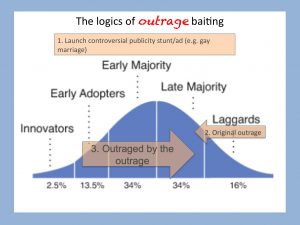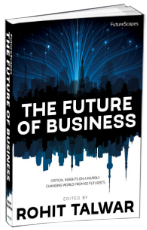10 Sep What You Need to Know About Marketing to Millennial Parents
The only other generational topic receiving as much attention as the young Generation Z or Homeland generation is the Millennial parenting cohort raising them. Still held back in life by economic setbacks and lengthy educations, Millennials are nonetheless a family-loving generation and will eventually go for the parenting life phase with full steam. In fact, they like the idea of having children so much that they believe being a good parent is more important than having a happy marriage. But how exactly can marketers win the hearts of this less than brand-loyal generation?
Millennials are known to be skeptical of big institutions. No generation does more research before making a purchase. They were children when the FCC relaxed their rules on marketing to children, which might have resulted in the side effect of producing more skeptical consumers. They are savvy buyers who have seen credit bubbles burst and have instant access to information at their fingertips. Listen to them, and you might win the trust of what might become the biggest parenting generation in America’s history.
Thou shall not pretend! #1
With pertinent, unbiased, often user-generated information at their fingertips, empty corporate promises and gimmicks are quickly divulged. So make sure your product can deliver what it claims, whether it relates to quality or standards of operation. On the other hand, this is a forgiving generation. You may have failed in the past, but Millennials won’t hold you in perpetual contempt or view you with the ideological lenses of their Boomer parents if you change.
Thou shall not pretend! #2
In advertising, don’t go for high gloss and glamour. Be real. Millennial parents are sick and tired of celebrity moms who shed their baby weight the first week after birth. Or the moms and dads who always puree organic celery (which their little tykes always pleasingly devour) on their spotless countertops. This should give a lot of creative freedom. Have fun. And invite parents to have fun by confessing to the little irks and challenges that go along with the early stages of parenthood. Because parenting is hard. And nobody’s perfect. And you’re not perfect either.
Be transparent!
Earlier this summer Elon Musk released the patents for his Tesla car. Musk is of course motivated by his desire to make the autoindustry go green. And maybe sell some more batteries. But this was also a very strategic PR move on many levels. On the one hand, environmental consumption is becoming the norm, not the exception. Secondly, car buying among millennials is currently abysmal. They opt for zip cars or take the bus. But millennials respect corporate transparency almost as much as they respect green production. So when car-sharing turns out to be too laborious for millennial with growing families, Tesla will own this market. And maybe even unemployed millennials will forgive Tesla’s manufacturing robots that are currently stealing their jobs.
Know your tribe
No, you don’t have to be liked by everybody. Not every millennial parent will be evangelizing your message across social media platforms. But in the reputation economy you have to know who your mavens are. Maybe they’re not the ubercool hipsters who twirl their staches while discussing Proust over a glass of Kombucha in the back of an urban vinyl record store. If they are parents, they most likely belong to a very different market segment. For millennial parents turn out to be more conservative, even more likely to say they are born-again Christian. This is partly because millennials are depoliticizing the meaning of ‘conservative’. Another possible reason is selection bias because the subset of millennials who become parents in their 20s tend to be more religious and marry and procreate earlier. Just focus on your market segment and make sure they talk about you. Then most is won. And your marketing director doesn’t have to read Proust.
Diversify it!
Do your best to appeal to all types of parents, interracial couples, same-sex couples, single parents or other good but different parenting types who evade the traditional straightjacket. Advertisement still to this day is remarkably homogenous. Reflect the true diversity and you will not only win points with the groups that are notoriously underrepresented, but you will also win over the vast majority who sympathizes with them. Here’s how it works: You launch a marketing campaign that is controversial among consumers on the last quartile of the any bell curve indicating adoption of changing values. This will generate publicity for your product by antagonizing the cultural laggards most millennials want to disassociate with. Not saying you shouldn’t choose a more diverse strategy just because it’s the right thing to do, but extra points for aligning yourself with the right “controversial” values is a nice side effect, isn’t it? This is what youth marketing expert Amy Jussel calls outrage-bating.

Quantify it!
It’s possibly our Homelander kids’ 1984-like future, but big data is still in a phase where people are willing to sacrifice potential privacy leaks for convenience. Eventually Resilience Parents will shed some of the parental angst that flourished with Boomer and Gen X helicopter parents, but for now young parents embrace the safety of surveillance. Just wait till baby-related TMI from all sorts of quantified baby devices explode the already exponentially growing curve of the world’s zettabytes. Welcome to the Internet of things. And of babies. Or something like that.
Healthify it!
Millennial expert Jeff Fromm of FutureCast says that Millennial parents want foods that are ‘less-bad’. They are still holding on to their pre-kid foodie, locavore identities, but have to adjust to the not-so wholesome realities of limited household budgets. And they are frugal. As mentioned, millennial parents learn quickly that their babies might just as well use their lovingly prepared rutabaga stew as orally administered spray paint. So even the self-assured millennial parent will eventually come to accept that the mac’n cheese box is a survival kit, not a culinary choice. The fact that obesity in America is stagnating; even reversing in some places, proves a shift to healthier American families. So food is not an area were millennial parents are likely to skimp on. On the other hand, most of them have modest incomes, so ‘less-bad’ foods will be the sweet spot for many brands.
Beware of gender stereotyping.
Not only is the focus on mothers as the default parent implying that raising children is still a woman’s job, but you’re alienating the growing number of fathers who are taking a more central role in child rearing. These men carry a double duty because they often get ostracized on playgrounds and from mom circles. Co-existing with the aforementioned cultural laggards who patronizingly call them “mister moms”, the scorn they receive can be particularly harsh if their sons also espouse “effeminate” interests. These men need some long overdue role models. The hapless, doofus sitcom dad isn’t helping much. Like Coca-cola shows us here, a fair gender portrayal doesn’t have to be preachy nor unfunny.
Care.
Care about their children. Care about them. And care about the world. Your advertisement dollars are only going to get new parents’ attention for a fleeting moment. It’s not going to make them like you. Or just ‘like’ you. To get them to really like you, you have to do something for somebody or something they care about. Whether it’s building drinking wells in drought struck regions or providing healthy foods for the needy, your brand is what you do. And eventually what you do is what the millennials’ kids will remember you for.
Image: Anne Boysem FreeDigitalIPhotos.net, Polyvore



Sorry, the comment form is closed at this time.